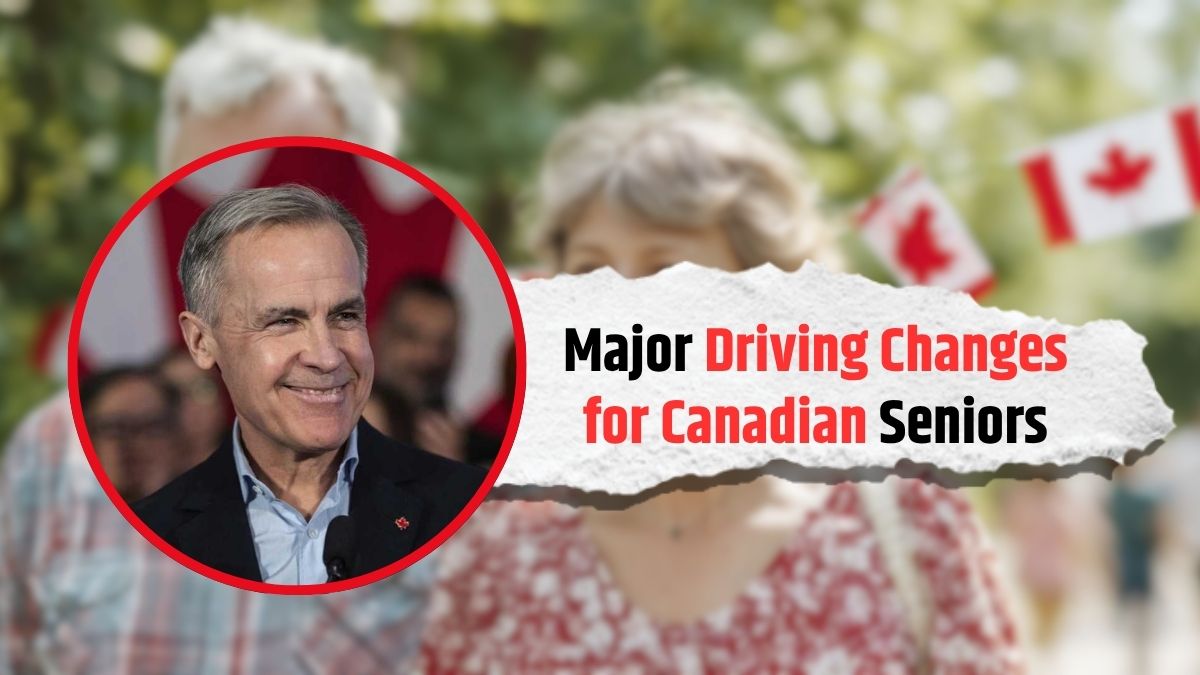Canada is preparing for a major update to how senior citizens are tested and licensed to drive. Starting August 2025, new rules will be introduced for drivers aged 70 and above in several provinces. Despite some headlines claiming a nationwide change, this is not a federal law, but rather a move by provincial and territorial governments.
Each province will design its own version of the rules, but most are aligning around shared principles like health checks and conditional licenses. These new rules are meant to improve safety on the roads while balancing the independence and mobility of older adults.
Not a National Rule
(Who Regulates Driver Licensing in Canada?)
In Canada, driver licensing is entirely regulated by individual provinces and territories, not the federal government. While there is growing coordination between jurisdictions, there will be no single national rule. Each province may implement its own procedures and timelines based on local needs and infrastructure.
However, many provinces are aligning on certain standards, including medical evaluations, vision checks, and cognitive assessments for drivers aged 70 and above.
What Are the New Driving Rules for Seniors?
(Key Driving Changes for Canadians Aged 70+)
Beginning in August 2025, the new age-related rules for senior drivers will include:
- Mandatory medical evaluations starting at age 70
- Vision and cognitive screenings during license renewal
- In some provinces, refresher driving courses may be recommended or required
- Conditional licenses, restricting driving at night, on highways, or in bad weather
- Custom testing rules based on province (e.g., cognitive testing at 70 in BC, more rigorous exams at 80 in Ontario)
These changes aim to evaluate a person’s driving ability based on health, rather than age alone.
Medical Evaluations and Testing
(What Seniors Will Be Tested On)
Drivers turning 70 will need to complete regular health assessments to renew their licenses. These medical tests may include:
- Vision tests, measuring both clarity and peripheral awareness
- Cognitive screenings, testing memory, focus, and reaction time
- Motor coordination checks to evaluate physical ability
- A review of prescription medications, especially those affecting alertness
- In some cases, an additional road test or deeper evaluation may be requested
If issues are found, most seniors will not lose their licenses outright. Instead, they may receive a restricted or conditional license, allowing them to continue driving with certain limits.
Cost Concerns for Medical Testing
(Will Seniors Have to Pay Out of Pocket?)
One major concern is the cost of medical evaluations, which could range from \$150 to \$500, depending on the province and the required tests. Some provinces may cover or subsidize these costs, but others may not. As of now, there’s no national program to help with expenses.
For seniors living on a fixed income, these new costs could pose a serious challenge. Advocacy groups are urging governments to ensure testing remains affordable and accessible.
Is This Rule Fair?
(Concerns About Age Discrimination)
Some organizations have raised concerns that targeting older drivers could violate the Canadian Human Rights Act, which protects against age and disability discrimination.
However, authorities argue that these changes focus on a driver’s ability and medical condition, not their age. So far, no legal cases have been filed, and provinces insist the new rules are about ensuring safety for all road users.
What If Seniors Lose Their License?
(Will Seniors Be Stranded Without Transport?)
Losing a driver’s license can be devastating, especially for seniors in rural or suburban areas where public transit is limited. To prevent social isolation, provinces are working to expand alternatives, including:
- Senior shuttle services in urban and rural communities
- More accessible public transit and paratransit options
- Subsidized rideshare or taxi programs
- Travel vouchers for medical and grocery trips
These services aim to support seniors who may lose their full driving privileges but still need reliable transportation.
How Seniors Can Stay Road-Ready
(Steps to Prepare Before Turning 70)
Seniors who are approaching the age of 70 can start preparing now to maintain their independence and driving privileges. Some recommended steps include:
- Annual vision and hearing tests to catch problems early
- Taking a refresher or defensive driving course designed for older adults
- Staying physically active, which helps maintain reflexes and reaction time
- Reviewing medications with a doctor to spot side effects like drowsiness
- Keeping up-to-date with provincial driver licensing rules, which may change year to year
By staying proactive, seniors can reduce the chances of facing restrictions or losing their licenses.
Provincial Differences in Driving Rules
(Not All Seniors Will Be Treated the Same)
Even though provinces are coordinating their efforts, there will still be differences in how the rules are applied. For example:
- In Ontario, more detailed testing may begin at age 80
- In British Columbia, cognitive screening could start as early as 70
- Quebec and Alberta may implement separate timelines or focus areas
This means seniors should check with their local provincial motor vehicle authority to understand exactly what’s required of them.
Final Thoughts
(Balancing Safety and Freedom for Older Drivers)
Canada’s upcoming senior driving rule changes reflect a growing effort to balance public safety with personal freedom. With the population aging, ensuring that older drivers are fit to drive—without unfairly punishing them—is a key challenge for policymakers.
By introducing fair, ability-based evaluations and offering transport alternatives, provinces aim to maintain road safety while respecting the dignity and independence of Canada’s older adults.
FAQs
Q: Is this a national rule?
A: No, driver licensing is managed at the provincial level. However, many provinces are working together on similar guidelines.
Q: Will all seniors lose their license at 70?
A: No. Seniors will undergo medical evaluations and may receive conditional licenses, but most will not lose their license automatically.
Q: Do all provinces follow the same process?
A: No. Each province sets its own timeline and requirements, though many are aligning on key principles like medical testing.
Q: Who regulates driver licensing in Canada?
A: Each province and territory is responsible for regulating licensing. There is no federal licensing system.
Q: What can seniors do now to prepare?
A: Seniors should get regular vision tests, stay physically active, consider a defensive driving course, and monitor changes to provincial rules.






